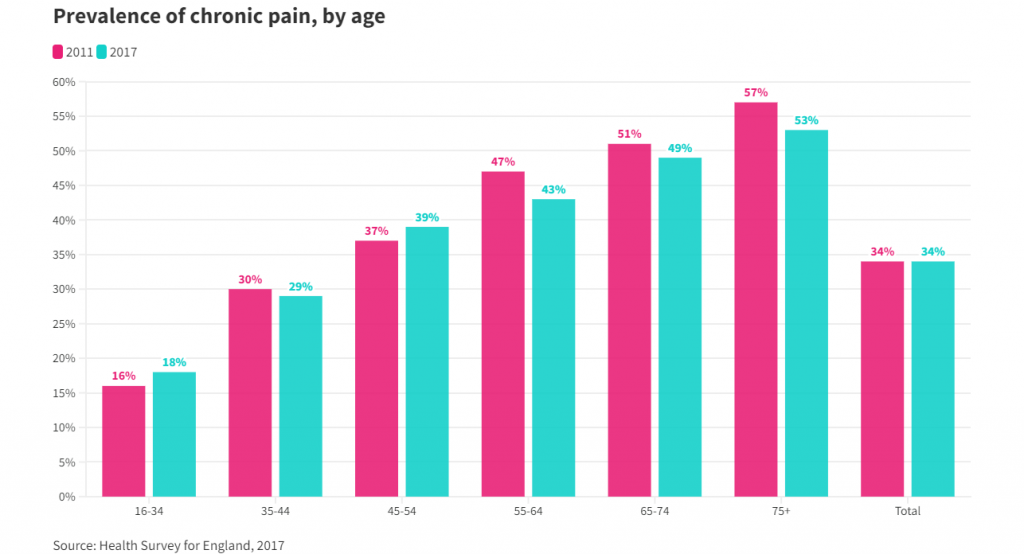The Social Market Foundation has thrown down the gauntlet to employers to place the same importance on raising awareness about chronic pain as they do mental health.
The think tank claims more needs to be done to help the 27% of the UK workforce who continue working despite being in persistent pain.
The SMF claim that not only are these workers more likely to take sick leave, but they are also less productive when they are able to work – due to being in persistent physical pain. Studies in the US suggest this lost productivity costs the economy around 1% of GDP.
Consequently, the SMF is calling for the launch of an awareness-raising campaign similar to those around mental health to make chronic pain in the workplace ‘a genuine priority for businesses’, backed up by measures from policymakers to better monitor chronic pain and improve treatment.
The SMF’s analysis of the most recently available Health Survey for England data found that women and working class people are more likely to work through chronic pain.
The data also showed that when compared with 2011, the number of people suffering chronic pain had increased in both the 16-34 and 45-54 age groups.
But as the the most recent data is from back in 2017, the SMF is calling for the survey to be rerun to reflect the impact of Covid on long term health outcomes.
The SMF is also calling on the National Health Security Agency to commission or carry out research on chronic pain in the UK to understand its costs and impact.
And the SMF adds any move to decommission chronic pain services should be scrutinised carefully, in case it is counter-productive.
Aveek Bhattacharya, chief economist at the SMF, said: “Most of us at some point or another will have struggled through work despite not feeling fully fit, but it is shocking and disturbing to think that one in four workers in regular pain. We should be doing everything we can to reduce that suffering, simply because it is the right thing to do. It is an added bonus that we can improve people’s engagement with work and their productivity, boosting the economy at the same time.
“With the country facing major health and labour market challenges as we emerge out of the pandemic, it is about time that chronic pain received the attention it deserves, from the public, researchers, employers and policymakers.”







